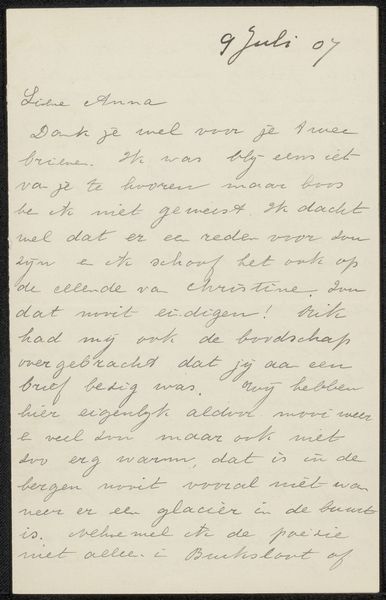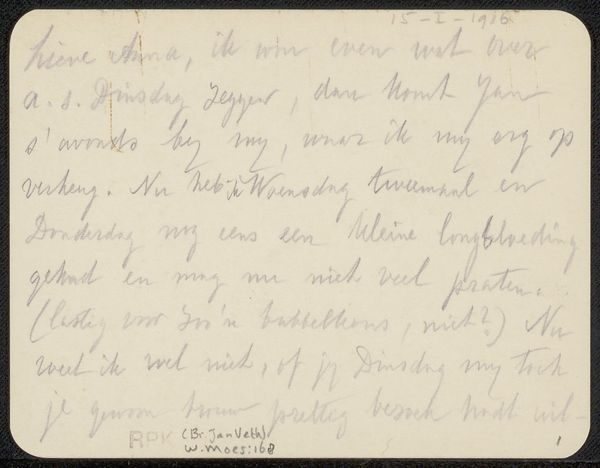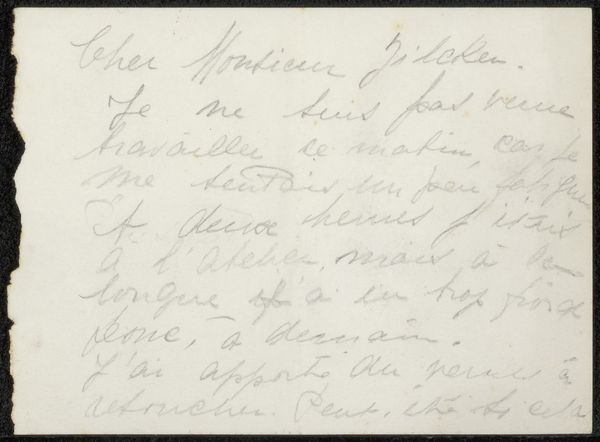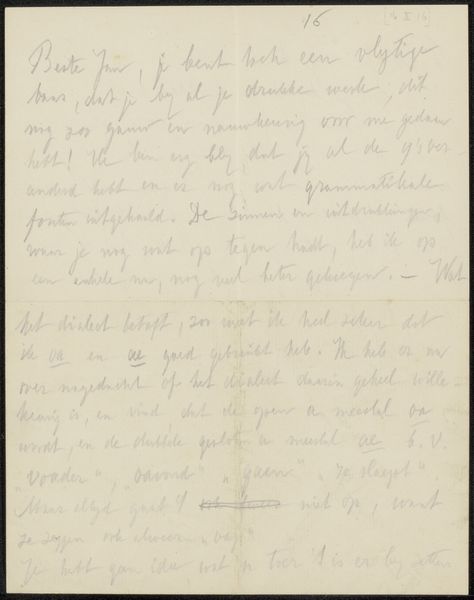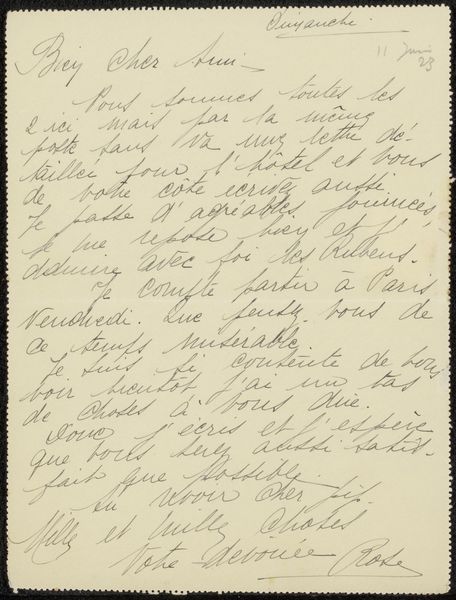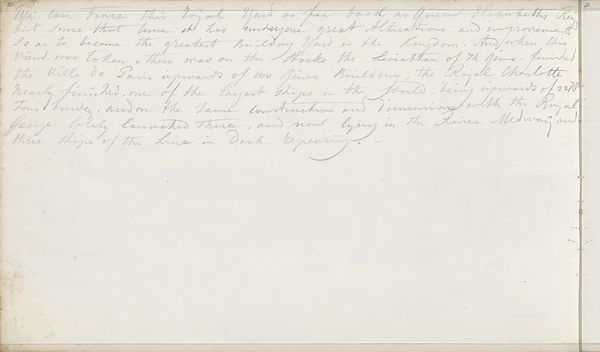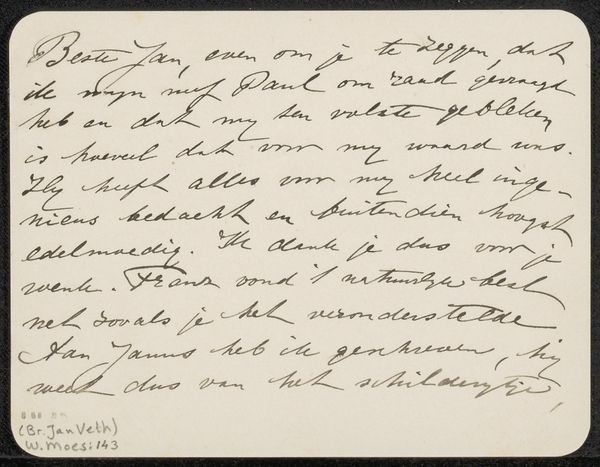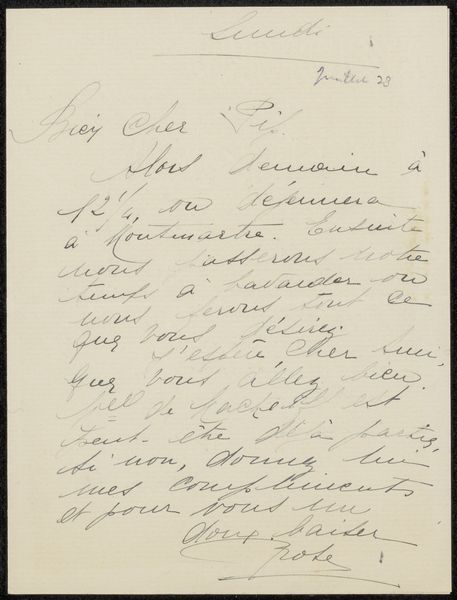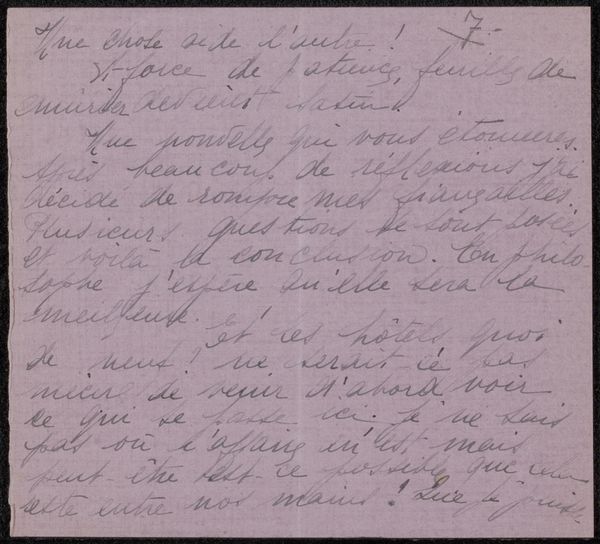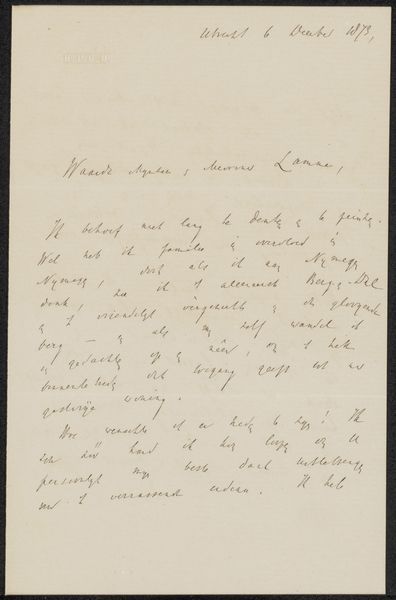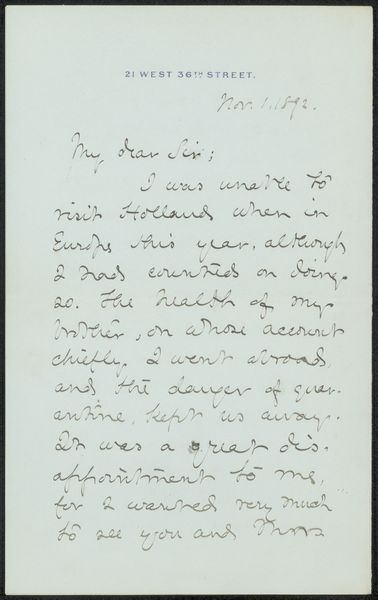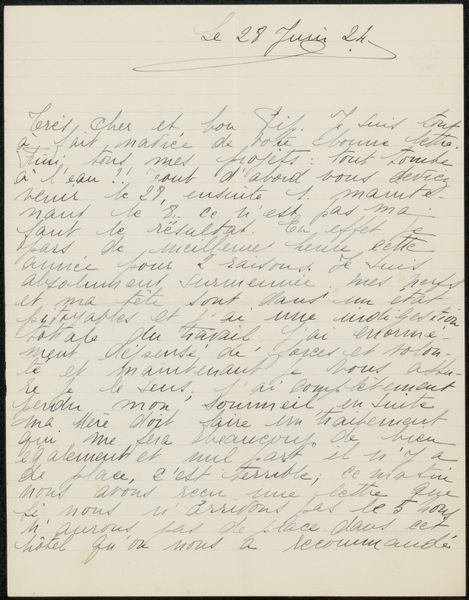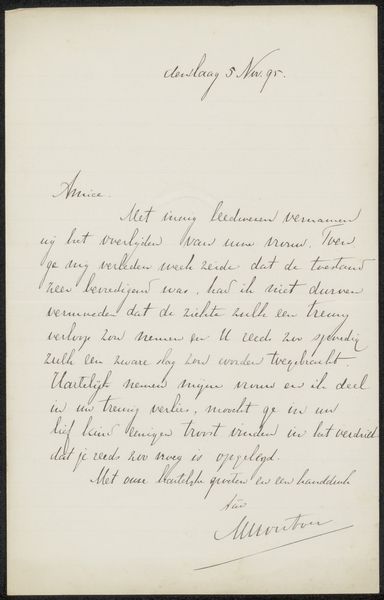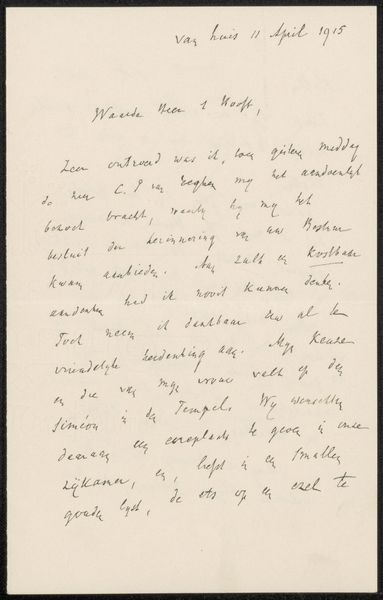
drawing, paper, pencil
#
portrait
#
drawing
#
dutch-golden-age
#
paper
#
pencil
Copyright: Rijks Museum: Open Domain
Curator: Ah, this drawing is something quite special. It's "Brief aan Anna Dorothea Dirks," a letter dating sometime between 1873 and 1918, rendered in pencil on paper by Wally Moes. Editor: The first impression? Ghostly whispers. It feels delicate, almost faded, like a message you're barely allowed to glimpse. I’m immediately struck by its intimate tone, which clashes with the document’s deterioration and lack of clarity. Curator: Indeed. Moes's portraits—and yes, this letter functions as one—often possess that ethereal quality. This piece is not overtly political but reveals aspects of social dynamics and domestic intimacy, which can speak to larger conversations around communication. Editor: There’s a real sadness here, at least, to my eye. It reminds me of sifting through attic relics—lost missives carrying the weight of forgotten lives. What are your thoughts on the composition? How might that reflect or shape these intimate themes? Curator: It's simple. Handwriting fills almost the entirety of the available area, save for a thin border around the paper’s edge. It is the way Moes presents this text. I mean to say, there’s this incredible, inherent value given by using pencil in a careful portrait fashion instead of a practical quick drafting—as if this is her highest dedication of her artistic ability to present the content as worthy, beyond functional needs. This is someone very committed to her subject. Editor: You put the finger perfectly onto an interesting detail; she seems to give value to every character or little trait in each word, but what it does for me is, that makes me reflect about who has the permission or agency to even attempt to decipher something this subtle? This reinforces a sort of artistic elitism, doesn’t it? I may appreciate, yet lack the key to full meaning; in effect it creates this dynamic where even access itself—in viewing this art—is mediated! It makes you question not what *is* revealed here, but what and how knowledge is withheld... Curator: Well, that's quite a radical reading, which is absolutely fantastic! Editor: That it is. These old pages speak volumes... Curator: Absolutely. Now, what an adventure in interpretation! Thank you, our listening guest!
Comments
No comments
Be the first to comment and join the conversation on the ultimate creative platform.
